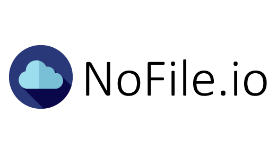Aussie Music Industry Wins First Ever Stream-Ripping Site Blocks
jeudi 16 mai 2019 à 11:08
The worldwide music industry is making no secret of its disdain for so-called stream-ripping sites.
Utilizing content culled mainly from YouTube but also other streaming platforms, these services convert streams into downloads, allowing users to permanently store content – usually music – on a local machine.
Earlier this year the fight to curtail the growth of such platforms landed in Australia. Music labels Sony, Universal, and Warner, with assistance from Music Rights Australia and the Australasian Performing Right Association, eventually appeared in Federal Court during April, asking for action against four key players.
2conv, Flv2mp3, FLVto, and Convert2mp3 (full list of domains below) are considered some of the most significant stream-ripping sites. The music industry asked the Court to prevent users of local ISPs from accessing them. None are located in Australia but that’s convenient from a blocking perspective – Australian law requires them to be based overseas.
Lawyers for the music entities argued that the services are all unlicensed and that while some of the platforms indicate that users themselves should obtain licensing to rip content, that was a “meaningless warranty.”
This morning, ComputerWorld reported what observers believed to be the inevitable outcome. Justice Perram of the Federal Court has sided with the record companies and ordered local ISPs to block access to the sites. The order covers Telstra, Foxtel, Optus, TPG and Vodafone, plus subsidiaries, the publication reports.
Before last year’s amendments to Australia’s Copyright Act, obtaining an order to have these sites blocked would have been more difficult.
Previously, in order for a platform to be rendered inaccessible by ISPs, it would need to have a “primary purpose of infringing”. Last November’s changes lowered the bar so that sites “with the primary effect” of infringing or facilitating infringement can also be blocked.
Another element that would’ve helped the Court side with the music companies is the fact that all of the targeted platforms have been involved in legal action in other countries.
Convert2mp3 is Germany-based and was previously declared illegal and blocked in a first-of-its-kind case in Denmark. The other three services are all based in Russia, with FLVTO.biz and 2conv.com embroiled in legal action with labels in the United States.
In that action, the platforms have thus far come out on top but from the labels’ perspective (1,2) this is unacceptable. Tofig Kurbanov, the Russian operator of the stream-ripping sites, says that if the record labels want a legal battle, they should have that fight in Russia.
In a reply brief filed at the Court of Appeals for the Fourth Circuit earlier this month, Universal, Warner Bros, and Sony argued that the confrontation should take place in the United States. Previously, US District Court Judge Claude M. Hilton dismissed the case due to a lack of jurisdiction.
It’s clear that the labels in the US and elsewhere are determined to stamp out the stream-ripping threat, wherever it may appear.
As reported here on TF yesterday, the RIAA recently obtained a DMCA subpoena to unmask the operator of stream-ripping site YouTubNow, a platform with an estimated 15 million monthly visits.
The domains to be blocked by ISPs in Australia are as follows:
2conv.com
Flv2mp3.by
Flv2mp3.com
Flv2mp3.org
Convert2mp3.net
Flvto.biz
Flvto.com
Source: TF, for the latest info on copyright, file-sharing, torrent sites and more. We also have VPN reviews, discounts, offers and coupons.




 There are hundreds of file-hosting services on the Internet, each with their own strengths and weaknesses.
There are hundreds of file-hosting services on the Internet, each with their own strengths and weaknesses. 



